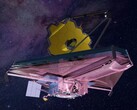Satellite navigation is increasingly vulnerable. Jamming and spoofing incidents around Ukraine, Russia, and the Middle East now disrupt thousands of civilian flights, exposing the fragility of Global Positioning System signals. Seeking a hard-to-hack fallback, Airbus's Silicon Valley subsidiary Acubed has joined forces with Google spinout SandboxAQ to evaluate MagNav, a toaster-sized quantum-sensing navigator.
During a 150-hour campaign across the continental United States, Acubed's "flight lab" aircraft carried MagNav while the device mapped the subtle magnetic fingerprints of the terrain below. The system compared those signatures with high-resolution magnetic charts and produced continuous position fixes without help from satellites.
MagNav’s heart is a laser‑driven quantum magnetometer. A photon excites an electron in the crystal; when the electron relaxes, it emits light whose energy varies with the local magnetic field. Every square metre of Earth produces a unique magnetic pattern, allowing onboard AI running on a single GPU to translate that pattern into latitude and longitude.
The U.S. Federal Aviation Administration demands en route accuracy better than two nautical miles (2.3 mies). MagNav stayed inside that limit on every segment and tightened precision to roughly 550 meters (0.34 miles) 64 percent of the time. Because the sensor is fully analog and self-contained, it is immune to radio jamming and cannot be spoofed.
SandboxAQ chief executive Jack Hidary calls MagNav the first novel absolute navigation system in 50 years. Analysts see broader applications: quantum sensors could locate hidden submarines or tunnels and even detect faint magnetic fields from the human heart or brain, opening new diagnostic tools. Further certification work lies ahead, but the experiment shows that a compact quantum device can give aircraft a resilient alternative when satellites go dark.
Source(s)
WSJ (in English)










